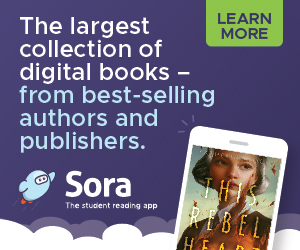By Andrew Davies and Graeme Scott
There is a Turkish saying that says, ‘No road is long with good company.’ The social ties and sense of belonging provided by our schools, although stretched during the pandemic period, continue to have a major impact on wellbeing and learning. The educational journey from kindergarten right through to high school and beyond can be extremely fulfilling and inspiring for many young people, but it can also be a real struggle for others.
The impact of one-to-one teacher-student relationships on learners
There is a large and growing research base (Cornelius-White, J.H. 2007; Roth, G., Assor, A., Kanat‐Maymon, Y., & Kaplan, H. 2007; Spilt, J.L., Hughes, J.N., Wu, J., & Kwok, O. 2012 to name but a few) to support the importance of one-to-one relationships in schools between a student and a trusted adult. Students who experience positive relationships with educators are more academically engaged and develop stronger social skills. Crucially, these one-to-one relationships can dramatically enhance students’ levels of motivation and open pathways to learning that may previously have been blocked. Only then, once a trusted connection has been made, can we begin to see students develop as self-directed learners.
This happens in stages, and begins when the care and interest shown by the adult leads students to trust the educator, whether that is a teacher, counsellor or assistant; they can then accompany them on a social learning journey which generally starts with more direction and emulation, but ultimately leads to self-control and self-direction. But how can schools provide structures for this?
Moving towards student self-direction
In primary/elementary school, we know that self-direction is a big ask – in fact, it’s beyond what we expect. The neural connections of an elementary school student are about to embark upon an essential process of pruning, leading to brain activation that is less scattergun and more specialised. The focus for us in primary/elementary classrooms, therefore, is to develop executive functioning skills and self-regulation, building the foundations for self-direction.
According to the Harvard Center on the Developing Child, these are the ‘mental processes that enable us to plan, focus attention, remember instructions, and juggle multiple tasks successfully’. In order to develop these skills, we need to create opportunities and learning experiences that facilitate such skill development.
Implementing one-to-one support within our international school
In our elementary school, we have been working to adopt a Universal Design for Learning (UDL) framework, and research-informed structures that develop autonomy and self-awareness within the classroom setting. We have created truly collaborative partnerships between homeroom teachers and specialists (learning support, EAL, counselling, OT, SLT, psychologist) resulting in multidisciplinary teams that can support the holistic development of each student. We are explicit in using strategies that support the development of executive functioning skills, such as visual checklists, 360 thinking, social thinking, zones of regulation, personalised goal setting and project planning.
In middle school and high school, we focus on high-impact learning strategies such as self-assessing, planning and prediction, reflection and high-quality feedback.
Throughout our school, we are creating a continuum of support, all based around one-to-one learning conversations. These are highly structured and only 5 to 7 minutes in duration, but they really help each student (and teacher) to understand what their goals should be, and the best ways to achieve them. The focus is not necessarily on curriculum content, but on ways of learning, self-awareness, self-advocacy and self-management – in short, their development as learners.
Our MARIO journey towards learner development
One of the ways we have orchestrated this in the middle and high schools is through an approach called the MARIO Framework, which sits within and enhances our multi-tiered system of support (MTSS). MARIO stands for Measured, Ambitious, Research-informed, Innovative and One-to-one. We’re proud that the framework originated from the classroom of one of our learning support teachers, Philip Bowman, and has since grown into a movement that is positively impacting classrooms in over 20 countries.
Our own MARIO journey has been a fascinating one, supported by a six-year retrospective study, currently in peer review and co-authored by UDL expert, Dr Katie Novak. The study measured the efficacy of our interventions in raising students’ GPA and resulted in a highly significant effect size of 0.91 (Cohen’s d). What that means in real terms for us, is that we have multiple cohorts of our students who are developing the skills to manage their own learning and who are experiencing positive growth in their sense of self-efficacy.
In the classroom, students are encouraged to identify and reflect on their areas of strength and challenge as learners. Using this information as a base, students then develop goals that they see as most meaningful to them in their journey to become self-directed, life-long learners. Through dedicated time to work towards these goals and ongoing self-reflections guided by the teacher through one-to-one learning conversations, students are empowered to take ownership of their learning. Putting students in the driver’s seat of their education also creates opportunities for students to explore topics that they are passionate about, resulting in deeply meaningful learning.
Teachers have the option to design student-informed lessons in areas that will benefit students both inside and outside the classroom. These may include topics outside the conventional school curriculum such as sleep hygiene, mindfulness, work-life balance, and so on. For instance, a teacher might guide students through a meditation at the start of class for 5 to 10 minutes before asking them to research and share different mindfulness techniques that they may find useful in their daily lives, leading to a class discussion on stress management and balance. This in turn has had a marked impact on their academic progress and also their social and emotional wellbeing.
Our further activation of alumni networks has provided us with fascinating and important data on the continued development of our young people and how well they are prepared at school for the greater independence and responsibility that comes with a move to university or the workplace.
The support structures we put in place at school, therefore, need to develop sustainable self-direction skills, so that this transition can be successful, and our students can respond positively to this significant change in expectations.
A school-wide culture towards self-directed learning
Although self-directed learning may sound like a laissez-faire approach, it is anything but. A key component is the creation of a schoolwide culture that supports and prioritises the development of each student as a learner. This means providing opportunities for students’ self-discovery and reflection, and the development of metacognition, leading to an understanding of how they learn best.
Professional learning experiences are integrated so that educators understand how best to build relationships with all learners and how to work alongside each student to develop transferable learning strategies that each student can select from and use when appropriate. A school looking to focus on the development of self-directed learning skills may want to utilise advisory classes or flex blocks for explicitly teaching metacognitive strategies, executive functions, goal setting and self-reflection protocols. The simultaneous incorporation of structured and consistent one-to-one learning conversations then work to reinforce, build upon and extend these concepts in a personalised manner.
It is always exciting as a school leader to witness the upscaling of an initiative from one teacher’s class to a schoolwide level and then beyond. Most importantly, the impact on our students (and also our teachers) has been significant and the holy grail of self-direction has now moved several steps closer.
Dr Andy Davies is Head of School at the International School Bangkok and Graeme Scott is Executive Chairperson at MARIO Framework. They worked together as Head and Deputy Head of the International School Bangkok from 2012 to 2018. Connect with Graeme directly on LinkedIn.




